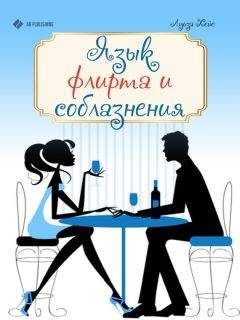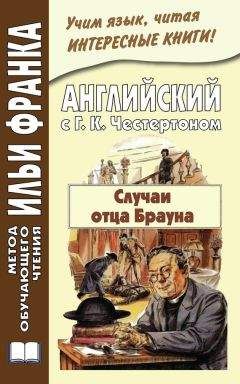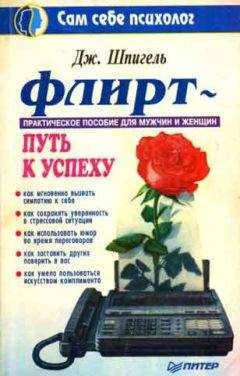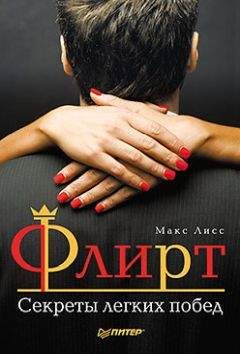Гилберт Честертон - Английский с Г. К. Честертоном. Рассказы об отце Брауне / Gilbert Keith Chesterton. The Innocence of Father Brown
“Fourth item. The wax candles, which have to be stuck in bottle necks because there is nothing else to stick them in. Now I wish you to note how very much queerer all this is than anything we anticipated. For the central riddle we are prepared; we have all seen at a glance that there was something wrong about the last earl. We have come here to find out whether he really lived here, whether he really died here, whether that red-haired scarecrow who did his burying had anything to do with his dying. But suppose the worst in all this, the most lurid or melodramatic solution you like.
Suppose the servant really killed the master, or suppose the master isn’t really dead (предположим, слуга действительно убил хозяина, или, предположим, хозяин жив: «на самом деле не мертв»), or suppose the master is dressed up as the servant, or suppose the servant is buried for the master (или предположим, хозяин /теперь/ одет как слуга, или, предположим, слуга похоронен вместо хозяина); invent what Wilkie Collins’ tragedy you like (придумайте любую трагедию в духе Уилки Коллинза,[6] какая вам нравится; to invent – изобретать; invention – изобретение), and you still have not explained a candle without a candlestick, or why an elderly gentleman of good family should habitually spill snuff on the piano (и вы все равно не сможете объяснить, почему свеча – без подсвечника, или почему пожилой джентльмен из хорошей семьи имел привычку рассыпать нюхательный табак на пианино; habit – обыкновение; обычай; to spill – проливать/ся/; рассыпать/ся/). The core of the tale we could imagine (суть истории мы можем представить; core – центр; сердцевина; суть; to imagine – воображать, представлять себе); it is the fringes that are mysterious (но детали очень таинственные; fringe – бахрома; край; периферия). By no stretch of fancy can the human mind connect together snuff and diamonds and wax and loose clockwork (ни при каком напряжении фантазии человеческий разум не в состоянии объединить нюхательный табак и бриллианты, и воск, и разобранный часовой механизм; to stretch – тянуть/ся/; вытягивать/ся/; напрягать/ся/; to connect – соединять; связать; объединять).”
Suppose the servant really killed the master, or suppose the master isn’t really dead, or suppose the master is dressed up as the servant, or suppose the servant is buried for the master; invent what Wilkie Collins’ tragedy you like, and you still have not explained a candle without a candlestick, or why an elderly gentleman of good family should habitually spill snuff on the piano. The core of the tale we could imagine; it is the fringes that are mysterious. By no stretch of fancy can the human mind connect together snuff and diamonds and wax and loose clockwork.”
“I think I see the connection (мне кажется, я вижу связь),” said the priest. “This Glengyle was mad against the French Revolution (этот Гленгайл был страшно зол на французскую революцию; mad – сумасшедший, безумный; раздраженный; рассерженный, рассвирепевший). He was an enthusiast for the ancien regime (он был предан дореволюционному режиму; ancient /фр./ = ancient – дореволюционный режим /государственное устройство Франции до революции 1789 г./), and was trying to re-enact literally the family life of the last Bourbons (и пытался буквально восстановить в своей семье быт: «жизнь» последних Бурбонов; to re-enact – вновь узаконить; восстановить; воспроизводить). He had snuff because it was the eighteenth century luxury (у него был нюхательный табак, потому что в восемнадцатом веке это было роскошью; luxury – богатство; роскошь); wax candles, because they were the eighteenth century lighting (восковые свечи, потому что в восемнадцатом веке они /использовались в качестве/ освещения; lighting – освещение); the mechanical bits of iron represent the locksmith hobby of Louis XVI (механические детали из железа представляют слесарное хобби Людовика XVI; locksmith – слесарь, специалист по замкам; lock – замок; smith – кузнец); the diamonds are for the Diamond Necklace of Marie Antoinette (бриллианты /предназначались/ для /бриллиантового/ ожерелья Марии Антуанетты).”
“I think I see the connection,” said the priest. “This Glengyle was mad against the French Revolution. He was an enthusiast for the ancien regime, and was trying to re-enact literally the family life of the last Bourbons. He had snuff because it was the eighteenth century luxury; wax candles, because they were the eighteenth century lighting; the mechanical bits of iron represent the locksmith hobby of Louis XVI; the diamonds are for the Diamond Necklace of Marie Antoinette.”
Both the other men were staring at him with round eyes (двое мужчин: «двое других мужчин» уставились на него круглыми глазами). “What a perfectly extraordinary notion (какая исключительно экстраординарная точка зрения)!” cried Flambeau. “Do you really think that is the truth (вы действительно думаете, что так оно и есть; truth – правда)?”
“I am perfectly sure it isn’t (я абсолютно уверен, что это не так; perfectly – совершенно; полностью),” answered Father Brown, “only you said that nobody could connect snuff and diamonds and clockwork and candles (только вы сказали, что никто не сможет установить логическую связь между табаком, бриллиантами, часовым механизмом и свечами). I give you that connection off-hand (я экспромтом установил: «даю» эту смысловую связь; off-hand – без подготовки; экспромтом). The real truth, I am very sure, lies deeper (но /истинная/ правда, я уверен, лежит глубже; deep – глубокий).”
Both the other men were staring at him with round eyes. “What a perfectly extraordinary notion!” cried Flambeau. “Do you really think that is the truth?”
“I am perfectly sure it isn’t,” answered Father Brown, “only you said that nobody could connect snuff and diamonds and clockwork and candles. I give you that connection off-hand. The real truth, I am very sure, lies deeper.”
He paused a moment and listened to the wailing of the wind in the turrets (он замолчал на минуту и прислушался к завыванию ветра в башенках /замка/; to wail – причитать, стенать; оплакивать; turret – башенка). Then he said (затем он сказал), “The late Earl of Glengyle was a thief (покойный граф Гленгайл был вором). He lived a second and darker life as a desperate housebreaker (он вел двойной образ жизни: «он жил второй и более темной жизнью» и был отчаянным грабителем; housebreaker – взломщик; грабитель; house – дом; to break – ломать). He did not have any candlesticks because he only used these candles cut short in the little lantern he carried (у него не было никаких подсвечников, потому что он только использовал эти обрезанные свечи в маленьком фонарике, который он носил с собой = брал на дело). The snuff he employed as the fiercest French criminals have used pepper (табак он использовал, как самые жестокие преступники-французы использовали перец): to fling it suddenly in dense masses in the face of a captor or pursuer (бросить неожиданно большое количество в лицо тюремщика или преследователя; captor – тюремщик; pursuer – преследователь; to pursue – преследовать). But the final proof is in the curious coincidence of the diamonds and the small steel wheels (но заключительное доказательство в странном сочетании бриллиантов и маленьких стальных колесиков; to coincide – совпадать; соответствовать). Surely that makes everything plain to you (без сомнения, это все объясняет вам; plain – очевидный; явный)? Diamonds and small steel wheels are the only two instruments with which you can cut out a pane of glass (ведь только при помощи алмазов/бриллиантов и маленьких стальных колесиков можно вырезать оконное стекло; pane of glass – оконное стекло).”
He paused a moment and listened to the wailing of the wind in the turrets. Then he said, “The late Earl of Glengyle was a thief. He lived a second and darker life as a desperate housebreaker. He did not have any candlesticks because he only used these candles cut short in the little lantern he carried. The snuff he employed as the fiercest French criminals have used pepper: to fling it suddenly in dense masses in the face of a captor or pursuer. But the final proof is in the curious coincidence of the diamonds and the small steel wheels. Surely that makes everything plain to you? Diamonds and small steel wheels are the only two instruments with which you can cut out a pane of glass.”
The bough of a broken pine tree lashed heavily in the blast against the windowpane behind them, as if in parody of a burglar (сук сломанной сосны сильно ударился из-за порыва ветра по оконному стеклу /за ними/, как будто это была пародия на вора-домушника; to break; to lash – хлестать; сильно ударять; burglar – вор-домушник), but they did not turn round (но никто не повернулся /на этот звук/). Their eyes were fastened on Father Brown (все глаза были прикованы к отцу Брауну; to fasten – прикреплять; устремлять, сосредоточивать /взгляд, внимание/).
“Diamonds and small wheels (бриллианты и колесики),” repeated Craven ruminating (повторил Крейвен задумчиво; to ruminate – жевать жвачку; раздумывать, размышлять). “Is that all that makes you think it the true explanation (это все, что позволяет вам думать, что вы нашли истинное объяснение; true – верный; правильный; to explain – пояснять)?”
The bough of a broken pine tree lashed heavily in the blast against the windowpane behind them, as if in parody of a burglar, but they did not turn round. Their eyes were fastened on Father Brown.
“Diamonds and small wheels,” repeated Craven ruminating. “Is that all that makes you think it the true explanation?”
“I don’t think it the true explanation (я не думаю, что это истинное объяснение),” replied the priest placidly (ответил священник мягко; placid – безмятежный, мирный, спокойный, тихий); “but you said that nobody could connect the four things (но вы сказали, что никто не может объединить эти четыре предмета). The true tale, of course, is something much more humdrum (на самом деле: «правдивый рассказ», конечно, все гораздо банальнее; humdrum – однообразие; повседневность; банальный). Glengyle had found, or thought he had found, precious stones on his estate (Гленгайл нашел, или думал, что нашел, драгоценные камни на своем участке; estate – поместье; имение). Somebody had bamboozled him with those loose brilliants, saying they were found in the castle caverns (кто-то его разыграл с этими бриллиантами /россыпью/, сказав, что они были найдены в пещерах замка = под замком; to bamboozle – обманывать; мистифицировать; cavern – пещера; полость). The little wheels are some diamond-cutting affair (маленькие колесики /связаны с/ обработкой алмазов; affair – дело). He had to do the thing very roughly and in a small way (ему нужно было все делать начерно и потихоньку; roughly – грубо; небрежно; in a small way – в небольшом масштабе; понемногу, потихоньку), with the help of a few shepherds or rude fellows on these hills (при помощи нескольких пастухов или неотесанных молодцов из этой местности: «с этих холмов»; shepherd – пастух; rude – грубый; невежественный). Snuff is the one great luxury of such Scotch shepherds (табак – это единственная роскошь для /таких/ шотландских пастухов); it’s the one thing with which you can bribe them (это единственная вещь, с помощью которой их можно подкупить; to bribe – подкупать). They didn’t have candlesticks because they didn’t want them (у них не было подсвечников, потому что они были им не нужны); they held the candles in their hands when they explored the caves (когда они исследовали пещеры, они держали свечи в руках; to hold; to explore – исследовать).”




